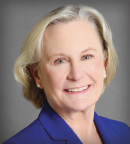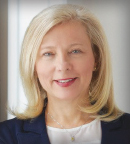ASCO and the National Cancer Policy Forum cohosted a workshop on October 5–6, 2023, to mark the 10-year anniversary of the Institute of Medicine (IOM) consensus report, Delivering High-Quality Cancer Care: Charting a New Course for a System in Crisis.1
The National Cancer Policy Forum is a convening body of the National Academies of Sciences, Engineering, and Medicine. During this 2-day workshop, attendees heard an overview of the 2013 report and advancements in the past decade, the challenges the oncology community still faces, and policy opportunities that would advance progress in cancer care. ASCO Chief Medical Officer Julie Gralow, MD, FASCO, FACP, and President Elect Robin Zon, MD, FASCO, FACP, were among the oncology leaders to present during the meeting.

Julie Gralow, MD, FASCO, FACP

Robin Zon, MD, FASCO, FACP
During her first presentation, Dr. Gralow reviewed the influence of the IOM over the past 10 years, noting the changes the Medicare environment has undergone. She also presented on the extensive research advancements that have altered cancer care such as precision medicine; new drug and treatment approaches; and greater efforts in the equity, diversity, and inclusion space. She delved into how the field is constantly transforming to meet patient needs and new standards of care.
“Cancer care and research are often not as patient-centered, accessible, coordinated, or evidence-based as they could be. And this meeting is about where we have come to meet those goals,” Dr. Gralow noted during her presentation. She also gave a sneak peak of ASCO’s new quality of care program, ASCO Certified.
Dr. Zon provided further data on progress since the 2013 report, noting the increase in cancer research and the promising new treatment paradigms. She also reviewed challenges in the field, focusing on physician burnout, barriers to care in rural areas because of a lack of providers, and cost of care and prior authorization.
“My colleagues are time bankrupt, and energy depleted, and yet they get up every morning and go to work because there’s a common adversary that is cancer, and we are there to share hope with our patients,” said Dr. Zon.
REFERENCE
© 2023. American Society of Clinical Oncology. All rights reserved.

